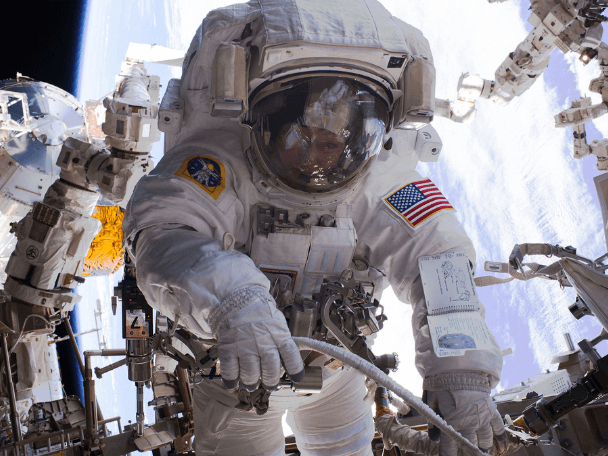Two Tickets to Mars is our brand new series where we quiz some of our favorite people about a trip to the red planet, what they’d take with them, and what exciting enterprises they’d kick start when they got there.

Image via NASA
Two Tickets to Mars is our brand new series where we quiz some of our favorite people about a trip to the red planet, what they’d take with them, and what exciting enterprises they’d kick start when they got there. Last week, Richard Branson. This week, Dr. Peggy Whitson.
Peggy Whitson was nine years old when she watched the first moon landing on television from her family farm in a small town in Iowa. That’s when she decided that she wanted to become an astronaut. Carried by this determination, she studied to become a doctor of biochemistry before working with NASA in Houston, where she rose up the ranks to eventually become Chief Astronaut and command the International Space Station, the first woman to do so twice.
Whitson has held several other records in her lifetime, too. In 2017, she broke the record for the most cumulative days spent in space by any NASA astronaut (534 days – no easy task) and the same year, broke the record for longest single space flight by a woman. Now retired, over the course of her career Whitson has spent 665 days in space… the equivalent of a round trip to Mars, so who better to ask what she’d make of the trip?
You are allowed to bring one luxury item with you to Mars, what’s going in your suitcase?
I am not used to thinking about what luxury items I might take to space. Getting by with the essentials is standard procedure for long-duration space flight.
We’ve gotten to Mars through human ingenuity and determination. Why is it that humans are driven to innovate?
I see innovation as a by-product to the very basic questions of ‘why are we here’ and ‘where are we going next?’ That inherent questioning in us drives us to explore, and innovation is required to do these very complex and difficult things.
All settlers perform tasks on Mars – what skills do you have and why might they be important?
I am really good with my hands. I can grow things and fix things… critical skills for surviving in a less than optimal situation.
You have a spare ticket – who are you bringing with you?
My husband!
What would you like to discover on your journey?
Life. It would be exciting to find what organisms might have adapted on a less than hospitable planet.
Now that we are headed to Mars, what does phase two of interplanetary colonization look like?
I envision people from all walks of life traveling together, with the common goal of forming a new outpost for humanity. I would hope that the strength of their bonds to each other would make them resilient to all the trials they will face together.
Imagine yourself in the future looking back – what do you wish we’d worked out sooner?
Faster space transportation systems, 3-D printing with natural resources (even garbage), and methods to enable our fragile bodies to endure the rigors of space more readily would be the technologies I would have wished for sooner.